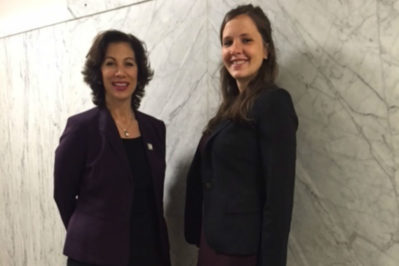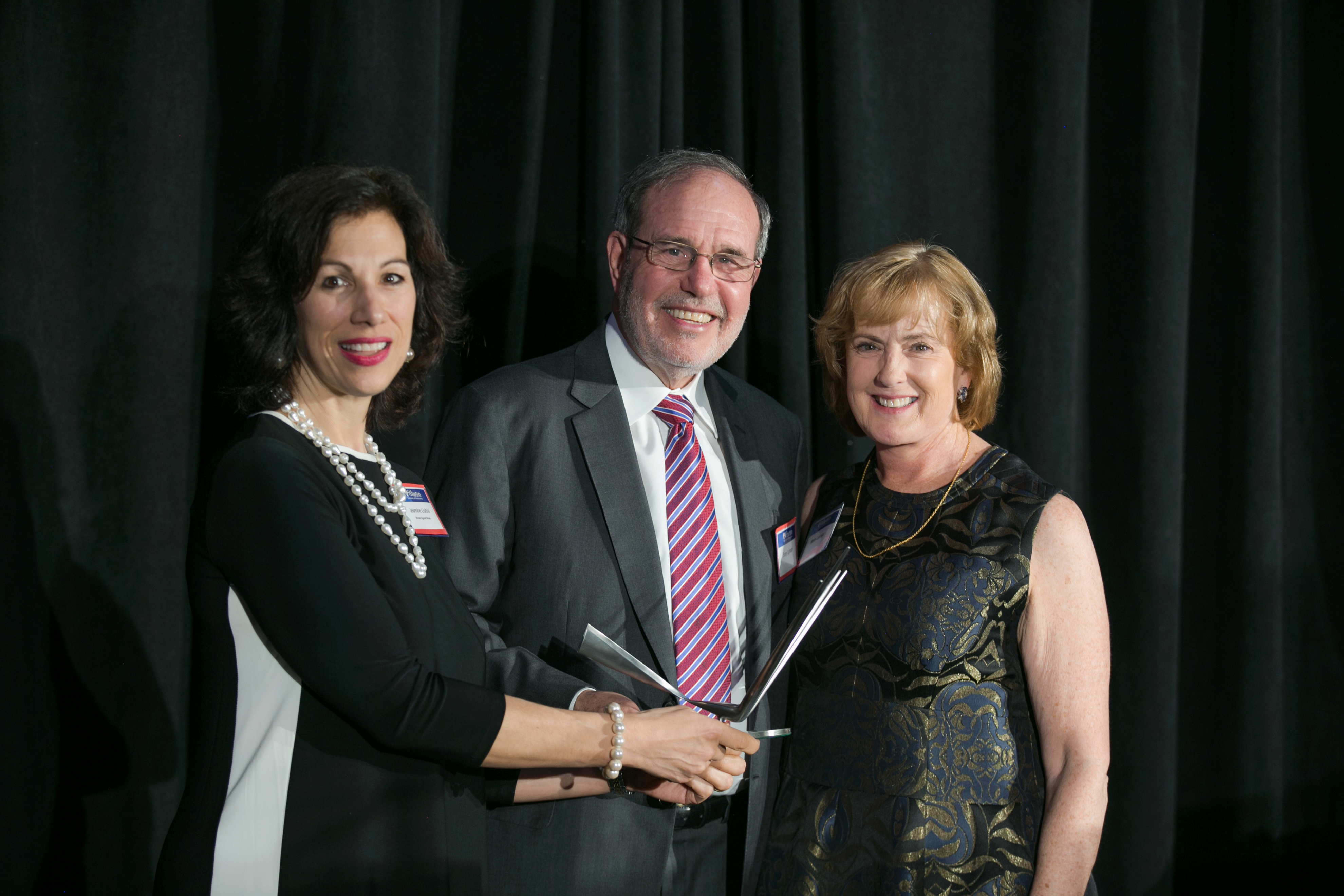This article was originally posted in the April 27, 2017 Philadelphia Inquirer and was written by Ronnie Polaneczky
Women Against Abuse wins $250,000
Women Against Abuse will use the Lipman Family Prize to save lives

It has been nine months since Joyce Quaeay, Megan Short, Mashanda Johnson, and Joseline Perez were alive and caring for their kids.
But in the space of two bloody weeks last summer, these local mothers – who didn’t know each other – were killed by their homicidal partners in grisly acts of domestic violence that dominated the news for weeks.
The news broke our hearts: In the cases of Quaeay and Perez, their children witnessed the attacks. In the cases of Short and Johnson, their husbands killed their kids before taking their own lives.
It was a massacre.
Before they were murdered, these women had expressed fears about their men. What if the right people had listened or known how to respond? Would the women be alive today?
Those are questions we ought to be sick of pondering, says Jeannine Lisitski, executive director of Women Against Abuse.

Thanks to a groundbreaking initiative her organization has created with dozens of city agencies and advocacy organizations, we might be one step closer to never asking them again.
It’s called Shared Safety, and on Friday it nabbed Penn’s coveted, annual $250,000 Barry & Marie Lipman Family Prize (administered by the Wharton School) for its effort to treat “relational violence” as a public-health issue, because it harms more than those suffering a monster’s punch.
“Relational violence has a ripple effect,” Lisitski says. “More and more research is linking violence in the home to violence in the community.”
Relational violence both underscores and exacerbates the city’s bleakest social ills, such as poverty, crime, and homelessness.
But our traditional way of dealing with it has been to call 911 only when the hurt has escalated into a danger zone. Shared Safety seeks to get at the problem earlier by screening for family violence – the way that medical professionals, for example, screen for a family history of diabetes, say, or depression. Then, Shared Strength provides a coordinated response to intervention.
Some of the city’s myriad health and human services agencies and victim- advocacy groups already do this, of course.
But their questions aren’t uniform, and protocols differ for analyzing the answers and for how to respond to what the answers reveal. Nor has there been a mandate to share the data among professionals, paraprofessionals, and law-enforcement folks who come into frequent contact with the abused and their abusers.
So great lessons aren’t shared nor common mistakes avoided. What wasted opportunities to learn.
Shared Safety pulls providers into one collaborative to create a community response to violence in whatever context it rears its head – such as teen dating, human trafficking, intimate partnerships, adult family members.
Tony Lapp is a fan. As co-director of Menergy, a treatment program for abusers, he’s excited that Shared Safety is expanding the response to relational violence beyond the criminal-justice system.
“We work with people who have a history of reacting badly when they’re hurt or frustrated; many are referred to us by law enforcement,” Lapp says. “But there are abusers out there who can be helped now, [before police intervention is required].”
Megan Short’s husband, for example, had no prior criminal history before he killed her, his kids, and himself. Although Short had called police on him during an argument, she never followed through on their advice to file a protection-from-abuse order against him. Under Shared Safety’s proposed protocols, a liaison would intervene immediately in such a situation to help a victim set protection into motion.
The $250,000 Lipman Prize will help Shared Safety expand its network of participant agencies, create a curriculum, and train providers. The goal is to replicate the program nationwide and, eventually, globally — tweaking for cultural and societal differences.
That potential made the program stand out among the 118 applicants for the prize says Barry Lipman, who established the award in 2012.
“I’m interested in expanding positive social impact,” he says. “So if this model is able to be replicated nationally, that’s a giant win-win.”
In a country where an average of 20 people are physically abused by intimate partners every minute —
equating to 10 million abuse victims annually — America could use some wins.
About the Author:
 Ronnie Polaneczky, a journalist for 30 years, is a Metro columnist at the Daily News, where she has won numerous journalism awards for listening to the city she loves and telling its stories in ways that get to the heart of who we are. She is the 2015 winner of the Eugene C. Pulliam Journalism Fellowship for her coverage of elderly parents who are still responsible for the care of their intellectually disabled, aging children. You can watch her TEDxPhiladelphia Talk, “The Power of Deliberate Listening,” at:
Ronnie Polaneczky, a journalist for 30 years, is a Metro columnist at the Daily News, where she has won numerous journalism awards for listening to the city she loves and telling its stories in ways that get to the heart of who we are. She is the 2015 winner of the Eugene C. Pulliam Journalism Fellowship for her coverage of elderly parents who are still responsible for the care of their intellectually disabled, aging children. You can watch her TEDxPhiladelphia Talk, “The Power of Deliberate Listening,” at:


